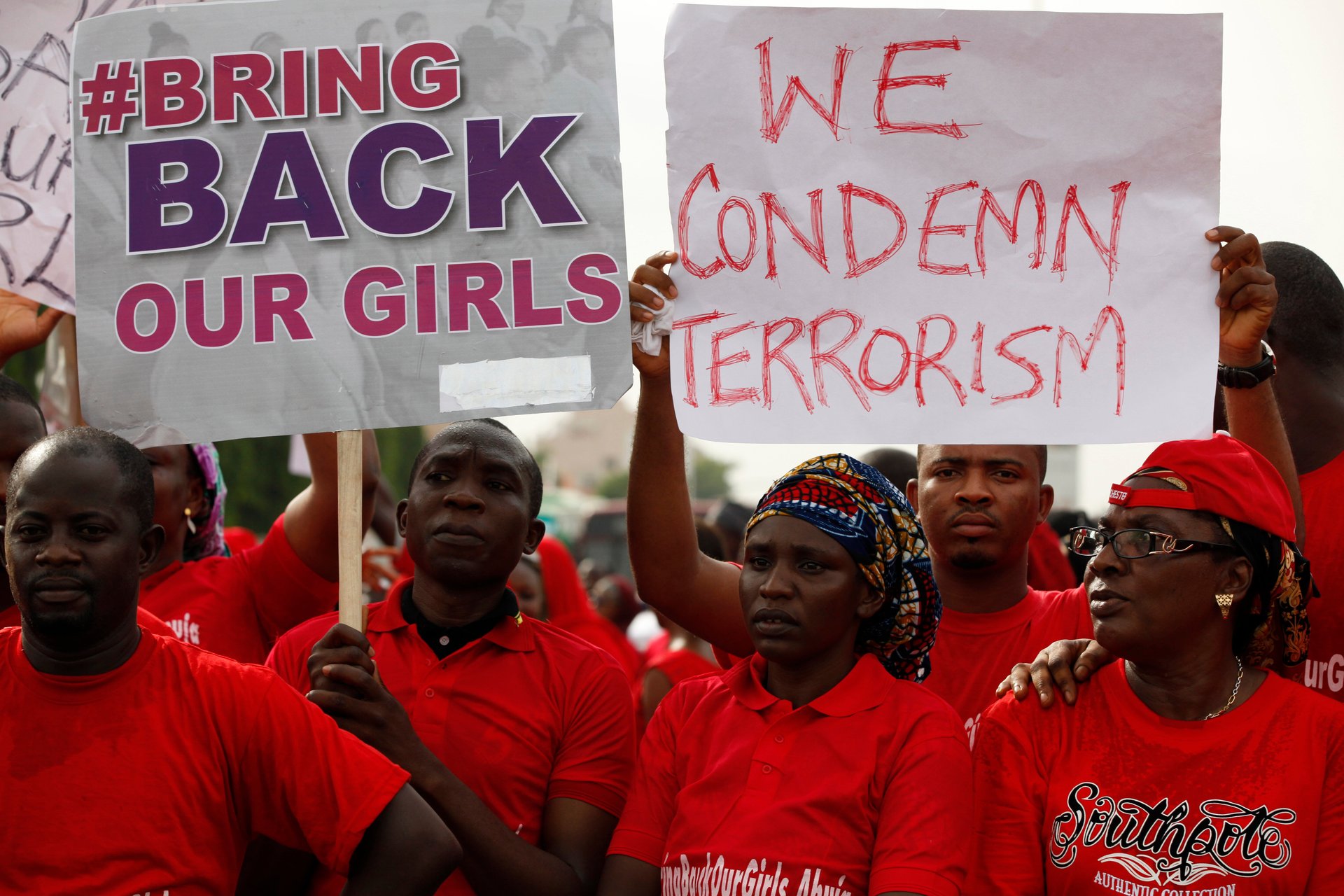It has been one year since nearly 300 girls were kidnapped by Boko Haram
Even as Nigeria has been celebrating a successful and peaceful election over the past few weeks, today’s date has been looming in the minds of human rights activists in the country and around the world.


Even as Nigeria has been celebrating a successful and peaceful election over the past few weeks, today’s date has been looming in the minds of human rights activists in the country and around the world.
Last year, it was on the night of April 14 when a group of men attacked a secondary school in Chibok, in northeast Nigeria, kidnapping nearly 300 girls who were studying for their exams. The kidnapping was undoubtedly the turning point in raising awareness of Boko Haram’s dastardly campaign in Nigeria both at home and abroad. While some of the girls escaped, more than 200 are still missing.
It spawned the #BringBackOurGirls campaign, led by former education minister Oby Ezekwesili and supported by celebrities and public officials around the world, including at the White House.
It also likely had an impact on the presidential elections two weeks ago, which incumbent president Goodluck Jonathan lost. His government seemed impotent and incompetent as they reacted slowly and defensively to the increasingly loud campaign calling for girls’ rescue. It didn’t help matters that the Nigerian First Lady unwittingly used the moment to turn herself into a local Internet meme with her exaggerated wailing over the plight of the girls, which many Nigerians thought was insincere.
President-elect Muhammadu Buhari, a former military leader, says combatting Boko Haram is one of his top priorities; there is no doubt that Nigerians also want to see the back of the terrorist insurgency. But it won’t be easy, and even after the scourge is supposedly dealt with, the effect of the insurgents’ six-year rampage in Nigeria’s north will linger. Buhari recognizes this and is already managing expectations before taking office, while also suggesting a new approach to tackling the terror group:
This new approach must also begin with honesty. We do not know if the Chibok girls can be rescued. Their whereabouts remain unknown. As much as I wish to, I cannot promise that we can find them. But I say to every parent, family member and friend of the children that my Government will do everything in its power to bring them home.
A new UNICEF report, timed for the anniversary of the Chibok girls abduction, highlights the heavy toll Boko Haram has taken on children’s lives in a region that spreads beyond Nigeria to include Niger, Chad, and Cameroon. Around 800,000 children have been forced to flee their homes due to the conflict in the region, UNICEF says:
The abduction of more than 200 girls in Chibok is only one of endless tragedies being replicated on an epic scale across Nigeria and the region… Scores of girls and boys have gone missing in Nigeria—abducted, recruited by armed groups, attacked, used as weapons, or forced to flee violence. They have the right to get their childhoods back.